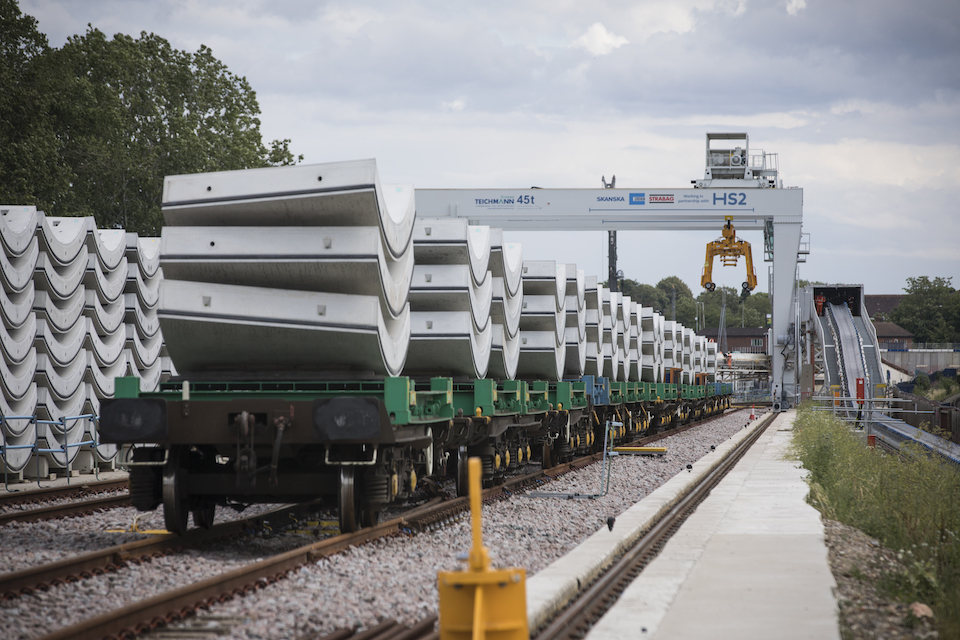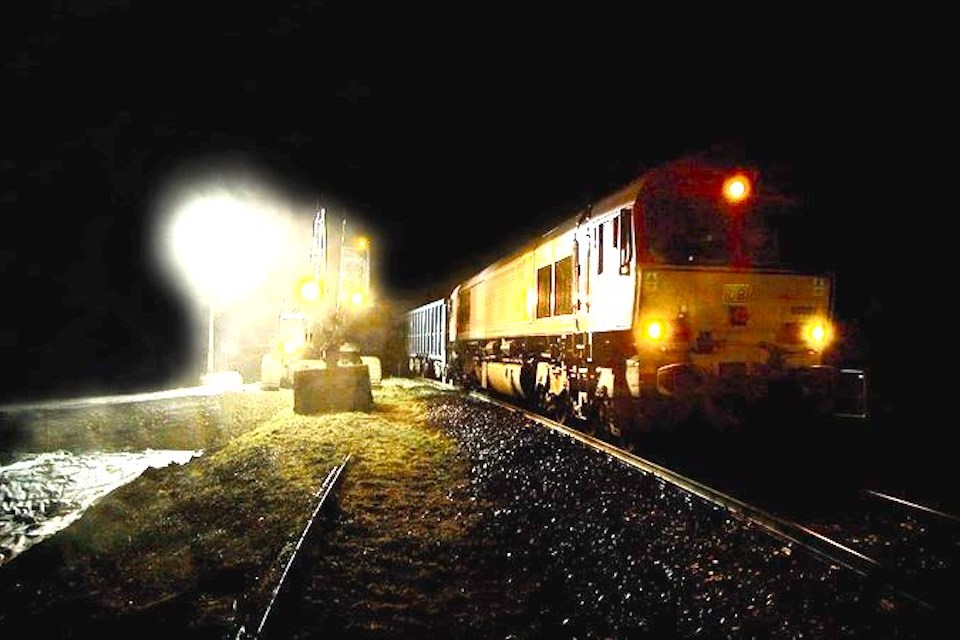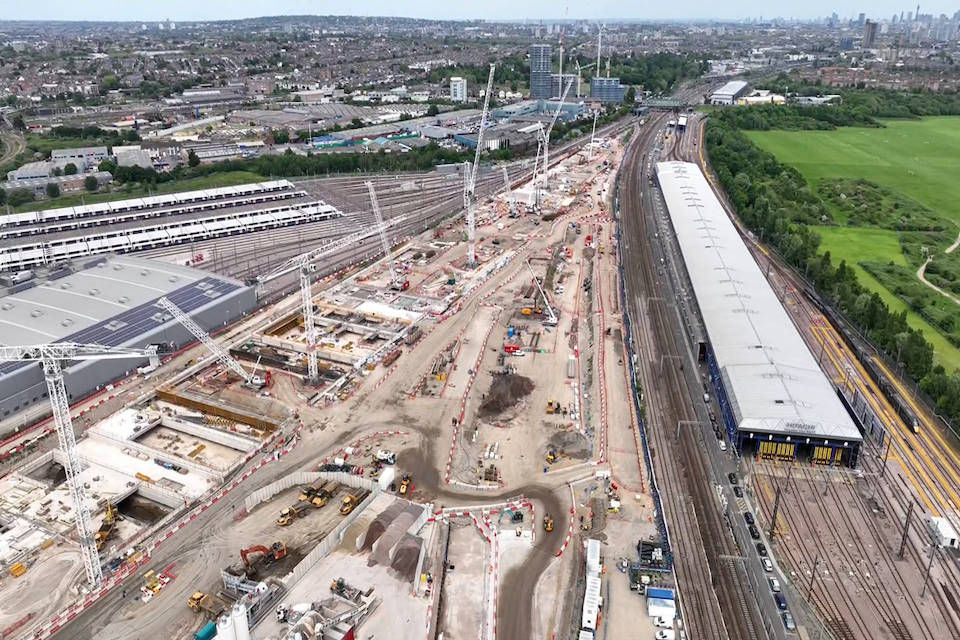HS2 materials by rail target reached and doubled says Minister Merriman

Huw Merriman, the UK minister for rail, whose portfolio also oversees the HS2 high-speed rail project, says construction is on target in one important metric. The HS2 materials by rail strategy remains at the heart of reducing carbon and creating jobs and opportunities. That strategy included the target of moving ten million tonnes of aggregate by rail.
At a recent industry event hosted by the Rail Freight Group, which represents the sector, Merriman revealed that the target was met by the end of 2023, seven years early. He says that the target has now been doubled. HS2 will seek to move 20 million tonnes using up to 30,000 freight trains, and taking three million trucks off the UK road network.
Bring forward other vital infrastructure projects
The HS2 minister was remarkably upbeat, given that much of his project has been cancelled, including the controversial abandonment of the Manchester connection to the line. Nevertheless, he saw positives from that cancellation. “There are three schemes, one of which we would not have been able to bring forward had we continued with HS2 [Northern Leg]”, he said. “Lots of people worked so hard to bring forward the Ely Area Capacity Enhancement scheme. It is something that I have wanted to deliver, something the Secretary of State [for transport, Mark Harper] has wanted to deliver.”

Merriman said the reality is that the rising costs of HS2 meant that projects like Ely were in serious jeopardy. “This decision has been made [and we] will be bringing the Ely scheme forward”, he said. “We understand the benefits of bringing more rail freight out of Felixstowe. Six freight trains a day, in each direction, will be added by doing this project.” It should, however, be noted that the UK government has repeatedly refuted concerns that HS2 costs impacted funding for other infrastructure projects.
Reset the project, reset the part played by rail freight
Speaking about the post “Northern Leg” landscape, Merriman said it had, at times, been difficult to operate within the HS2 footprint. That was most apparent in the site closest to his office, so to speak. “With the re-modelling of Euston, and where there were previously not going to be movements of the earthworks by rail freight, I have now made a point of discussing with Andy Lord [Commissioner of Transport for London] that we reset this project, when we do all these other projects together, we will make sure that rail freight is at the heart of it.”

Merriman said it will be the project’s presumption to move materials by rail freight. “If not, there will have to be a very good reason for not doing so”, he said. “I am determined that we do things better and will always include rail freight. It is important that we address [HS2] in a transparent way. If you are disappointed at the decision to cancel the future phases, then I understand why. I have been working on that project for some years. If you are concerned about the impact that it may have on rail freight in the UK, then I get that too.”
Engagement with the rail freight industry
Justifying the HS2 Northern Leg cancellation decision, Merriman said that increasing costs and what he called endless delays required attention and action. “What the government has attempted to do is to take the 36 billion pounds [42 billion euros] that would have been invested in those remaining stages and put them into transport projects around the country. Those are transport projects that we can bring forward earlier and actually get more of your inclusion with them.”

Whatever scepticism may remain over the reasons – or indeed the figures, the minister made pledges in front of a wide cross-section of the industry. It would be hard to renege. “So 36 billion pounds [42 billion euros] – which will be divided up between 20 billion pounds to the North [of England]; 10 billion pounds to the [English] Midlands, and the remainder to the rest of the country.” To satisfy the requirements of the devolved government structure in the UK, a formula exists whereby equivalent funding for transport is provided for Scotland and Wales, to offset projects deemed to only benefit England. Of course, with a UK general election due within a year, the minister may not be in office to deliver – or renege – on any pledges made to this or any other audience.




